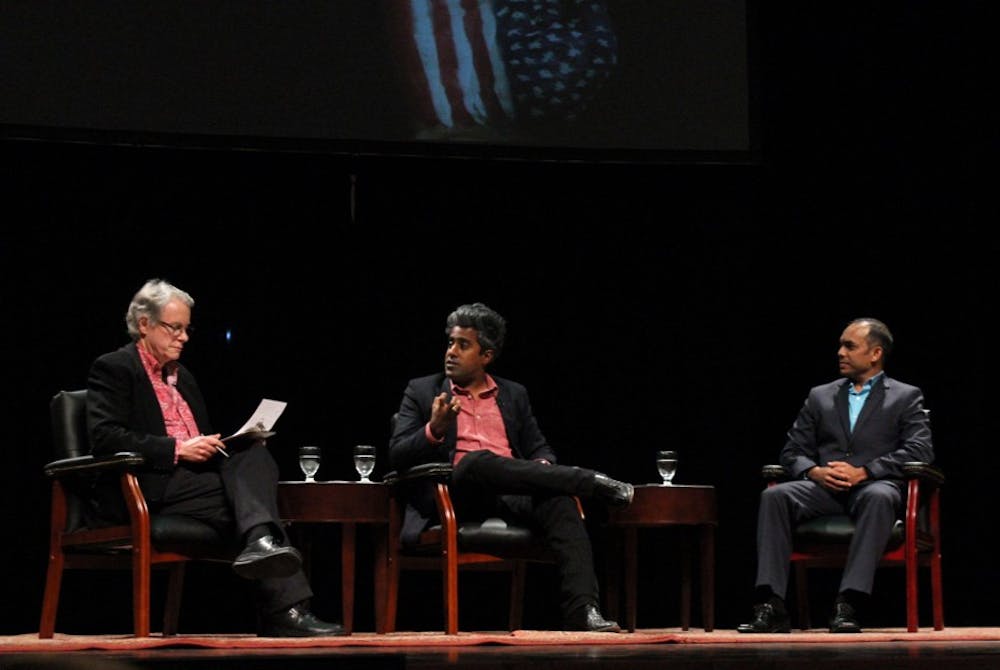Anand Giridharadas, the author of this year's Freshman Common Reader, "The True American: Murder and Mercy in Texas," and the main subject of the book visited campus on Sept. 20.
This book tells the story of Raisuddin Bhuiyan, a man from Bangladesh, who then worked as a convenience store clerk to help pay for a computer programming class.
In the days after 9/11, Bhuiyan was shot by a man trying to take "revenge" for the attacks. Bhuiyan has since publicly said that he forgives the shooter and doesn't hate him for the attack.
About 200 people attended attended the book discussion in Pruis Hall, led by professor Phil Bremen.
Giridharadas and Bhuiyan answered questions about the book and shared their views on issues such as white privilege, racism, forgiveness, 9/11 and stereotypes.
Bhuiyan also told a story about getting to know his neighbor in Tennessee.
When Bhuiyan first met his neighbor (a highly educated man from Tennessee), the neighbor hated him. He refused to talk to Bhuiyan until the day he got in a car wreck with his pregnant wife. Bhuiyan took the two to the hospital, where they sat around and talked. Bhuiyan even bought food for himself, the neighbor and the neighbor's wife.
The two started speaking on a deeper level, and that’s when the neighbor told Bhuiyan he thought Bhuiyan was a Muslim terrorist, which was why he refused to talk to him. Bhuiyan told him his story about being shot and his traveling lectures. This talk changed the neighbor's perspective and made him more accepting of Bhuiyan.
The issue that came up the most was 9/11, and how there are still hate crimes in America today.
"It reminds me of Orlando. I was both in shock and horror because there is still a problem emanating out of the dysfunctional states in the world, including Saudi Arabia, Iraq, et cetera," Giridharadas said.
"I am not frustrated," Bhuiyan said. "I am hopeful because pure ignorance is ignorant and it depends on your tolerance level. But you can't just put a Band-Aid on the issue and think that you resolved it. You have to find out why we have behave this way."
Jenny Hatton, a freshman anthropology major, enjoyed learning more about the men behind the book.
"I like the way that [Bhuiyan] talked. I could truly understand that he was a man of forgiveness and I thought that was really cool," she said. "I can see it. I understood what he meant."
Tamara Harris, a freshman animation major, had a similar reaction.
"I felt inspired. He's a very forgiving person, which is something that I am personally not," Harris said. "It was interesting hearing him and his perspective on things. I think that it has to tie back to his faith."
The book is currently being made into a movie, directed by Kathryn Bigelow of "Zero Dark Thirty" and "The Hurt Locker."
So far, the only information about the film is that Tom Hardy will be playing Mark Stroman, the man who shot Bhuiyan.





